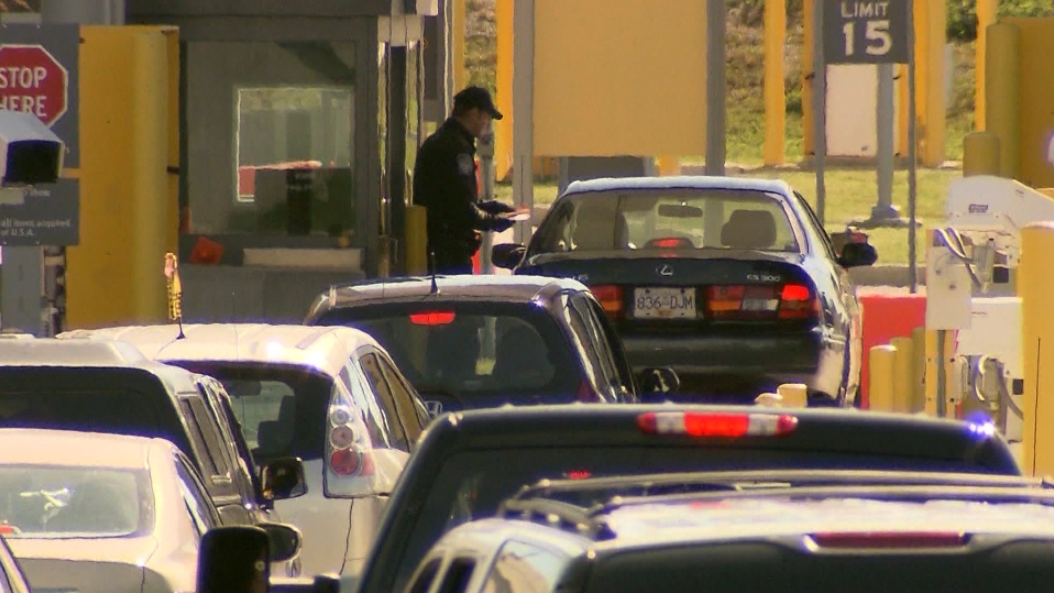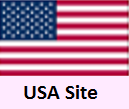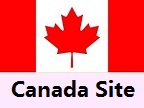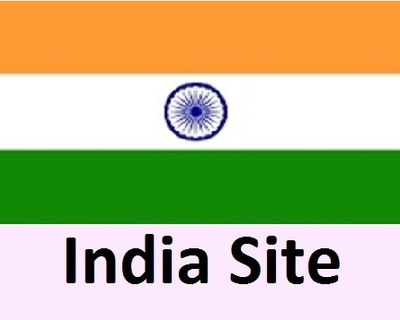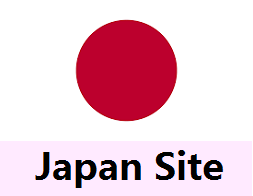|
James McCarten, The Canadian Press
Published Monday, July 19, 2021 1:43PM EDT
Last Updated Monday, July 19, 2021 4:53PM EDT
Published Monday, July 19, 2021 1:43PM EDT
Last Updated Monday, July 19, 2021 4:53PM EDT
WASHINGTON - Fully vaccinated U.S. citizens and permanent residents will be allowed into Canada as of Aug. 9, joined by the rest of the world Sept. 7, federal officials announced Monday as the country prepares to lower border barriers that were erected to limit the spread of COVID-19.
However, the United States is not currently planning to reciprocate by easing travel restrictions on would-be Canadian visitors hoping to go south of the border.
Public Safety Minister Bill Blair said he briefed Homeland Security Sec. Alejandro Mayorkas about the steps Canada intended to take, but got no indication that the U.S. would be following suit before the existing restrictions are set for renewal on Wednesday.
However, the United States is not currently planning to reciprocate by easing travel restrictions on would-be Canadian visitors hoping to go south of the border.
Public Safety Minister Bill Blair said he briefed Homeland Security Sec. Alejandro Mayorkas about the steps Canada intended to take, but got no indication that the U.S. would be following suit before the existing restrictions are set for renewal on Wednesday.
“He indicated to me at this time they have not yet made a decision; they anticipate their measures would likely be (extended) on July 21,” Blair told a news conference announcing the changes.
“They are obviously considering additional measures and data, but at the present time they have not indicated any plan to make any changes in the current border restrictions that are in place.”
That imbalance is sure to aggravate domestic political tensions around the border issue in the U.S., where a growing chorus of congressional lawmakers have been pressing President Joe Biden and his officials to embrace their vaccination success to date and ease international travel restrictions.
Rep. Brian Higgins, the New York member of Congress who has spearheaded the American campaign, said as much in a statement Monday as he cheered the Canadian measures.
“It is extremely frustrating that the U.S. government has failed to reciprocate current family exemptions already allowed by the Canadian government and failed to show a lack of urgency to make any progress on this side of the border toward lifting restrictions,” Higgins said.
“The U.S. has neglected to give reopening the northern border the serious attention it deserves, and there is no excuse. Failure to co-ordinate this announcement in a binational way will only lead to confusion among travelers.”
Political observers in both countries have pointed to the onset of the Delta variant in the U.S., stubborn vaccination rates and the ever-present challenge of the U.S.-Mexico border as some of the factors at play in the apparent American reticence.
Not long after Canada's plan was announced Monday, White House press secretary Jen Psaki tried to play down any suggestion that the U.S. should feel obliged to follow suit.
“I wouldn't look at it through a reciprocal intention,” Psaki told the daily briefing.
“We are continuing to review our travel restrictions; any decisions about reopening travel will be guided by our public health and medical experts. We take this incredibly seriously, but we look and are guided by our own medical experts.”
Canadian officials say the 14-day quarantine requirement will be waived beginning the second week of August for eligible travellers who are currently residing in the United States and have received a full course of a COVID-19 vaccine approved for use by Health Canada.
The move comes two weeks after the Canada Border Services Agency began waiving quarantine rules for fully vaccinated Canadian citizens and permanent residents - a move that prompted an unsurprising spike in the number of travellers seeking to enter the country.
But Canada is nowhere near being out of the woods just yet, said Health Minister Patty Hajdu, who seized on the chance to encourage more Canadians to get vaccinated.
“They are obviously considering additional measures and data, but at the present time they have not indicated any plan to make any changes in the current border restrictions that are in place.”
That imbalance is sure to aggravate domestic political tensions around the border issue in the U.S., where a growing chorus of congressional lawmakers have been pressing President Joe Biden and his officials to embrace their vaccination success to date and ease international travel restrictions.
Rep. Brian Higgins, the New York member of Congress who has spearheaded the American campaign, said as much in a statement Monday as he cheered the Canadian measures.
“It is extremely frustrating that the U.S. government has failed to reciprocate current family exemptions already allowed by the Canadian government and failed to show a lack of urgency to make any progress on this side of the border toward lifting restrictions,” Higgins said.
“The U.S. has neglected to give reopening the northern border the serious attention it deserves, and there is no excuse. Failure to co-ordinate this announcement in a binational way will only lead to confusion among travelers.”
Political observers in both countries have pointed to the onset of the Delta variant in the U.S., stubborn vaccination rates and the ever-present challenge of the U.S.-Mexico border as some of the factors at play in the apparent American reticence.
Not long after Canada's plan was announced Monday, White House press secretary Jen Psaki tried to play down any suggestion that the U.S. should feel obliged to follow suit.
“I wouldn't look at it through a reciprocal intention,” Psaki told the daily briefing.
“We are continuing to review our travel restrictions; any decisions about reopening travel will be guided by our public health and medical experts. We take this incredibly seriously, but we look and are guided by our own medical experts.”
Canadian officials say the 14-day quarantine requirement will be waived beginning the second week of August for eligible travellers who are currently residing in the United States and have received a full course of a COVID-19 vaccine approved for use by Health Canada.
The move comes two weeks after the Canada Border Services Agency began waiving quarantine rules for fully vaccinated Canadian citizens and permanent residents - a move that prompted an unsurprising spike in the number of travellers seeking to enter the country.
But Canada is nowhere near being out of the woods just yet, said Health Minister Patty Hajdu, who seized on the chance to encourage more Canadians to get vaccinated.
TIPs: Retail Item prices & shipping costs for the same products may differ among different countries. Price comparison is suggested.
New experience! Shopping around different countries, while sitting at home.
New experience! Shopping around different countries, while sitting at home.


